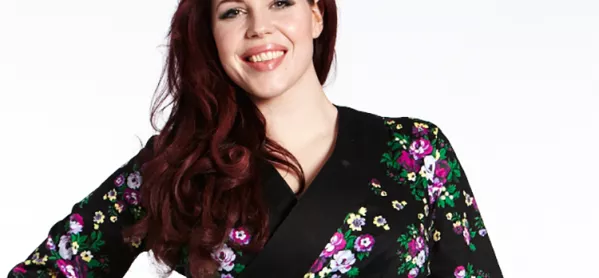This week, I want to talk about the phenomenon of “no platforming”.
Actually, I’ve wanted to talk about it since hugely controversial alt-right commentator Milo Yiannopoulos’ speech at his former grammar school was cancelled amid protest fears and after an intervention by the Department for Education this time last year. Back then, I wasn’t really sure how I felt about it. I confess, 12 months later, I’m still not.
(I hate being a liberal sometimes. I sometimes crave the certainty that people on the more extreme fringes of the political spectrum appear to have about things.)
In the era of endless accusations of “fake news” and curtailing of so-called “freedom of speech” from all sides of the political spectrum, there needs to be a discussion, followed by more clear guidance, on what makes for an appropriate visiting speaker. Of course, this will vary depending on the age of the audience. I don’t think anyone would advocate sending Tommy Robinson into a primary school, but when it comes to key stage 4 and beyond, there could be an opportunity to let students hear controversial views in a controlled environment. Maybe.
Range of voices
At the moment, when I visit schools, I am asked to sign a document confirming I will adhere to “British values”. These include “mutual respect for and tolerance of those with different faiths and beliefs”. I have never hesitated to sign because I read this as “don’t incite hatred towards any group of people, particularly Muslims”. So I wonder, then, how Katie Hopkins will manage when she gives her planned school assemblies?
Milo Yiannopoulos undoubtedly enjoyed a period of huge popularity among young people in Britain, mostly as a result of his presence on YouTube. Like most people who don’t read Brietbart, I had never heard of him until I was invited into Sky News to debate him, after which teenagers, usually male, kept stopping me after class to ask about him.
They were hugely persuaded by his “feminism is cancer” slogan, to the extent that once a student walked out about a minute into one of my assemblies, in an act of protest. I was later informed that he’d been instructed to do so by Milo on Twitter.
On the one hand, I can see why schools wouldn’t want to give a platform to a man who was famously banned from social media for orchestrating a mass act of racist and misogynistic bullying against actress Leslie Jones. On the other, I wonder whether not allowing him to speak was part of what contributed to his rock ‘n’ roll status. After all, teenagers generally love nothing more than something that inspires adult disapproval.
Furthermore, teachers could have given Milo’s views some all-important context and thus diminished their persuasiveness. A few years ago, I visited a school who were expecting a visit the following week from Julie Bindel, a radical feminist most famous in modern times for what many deem to be her transphobic views. After I had spoken, the head of year explained who the next speaker was going to be, that her views were considered controversial, but that in their school they believed in hearing a range of different voices and there would be an opportunity to discuss what they had heard in form time the following afternoon.
Critical thinking
I appreciate not every school has sufficient timetable space for this kind of approach, but I liked that they were crediting their students with enough intelligence to think critically about what they heard and to make up their own minds.
Last week, Lee Dargue, Liberal Democrat health spokesperson for the West Midlands, tweeted a thread about democracy and how it is more important than ever in 2017. He said: “…Threats to democracy are defeated [by] getting more democratic. The BNP are the most recent, easy example. “Keep Nick Griffin off Question Time!” they screamed. Well, we gave him airtime and he was ruined.”
The landscape of current affairs has changed unrecognisably. The lines between entertainment, advertising, politics and social commentary have been irrevocably blurred. If so many adults were unable to concede that painting the slippery phrase “We send the EU £350 million a week. Let’s fund our NHS instead” didn’t mean, “We will definitely save £350 million per week if we leave the EU, which we promise will directly go towards funding the NHS,” and cast one of the most important votes in our nation’s history accordingly, it’s clear we have a problem with critical thinking in Britain.
I don’t want this to turn into yet another unreasonable addition to the to-do list of schools. If we decide policy has to change, then it has to be done properly. But it’s worth a conversation, at least.
Let’s go…
Natasha Devon MBE is the former government mental health champion. She is a writer and campaigner and visits an average of three schools per week all over the UK. She tweets @_natashadevon. Find out more about her work here
Want to keep up with the latest education news and opinion? Follow Tes on Twitter and Instagram and like Tes on Facebook



